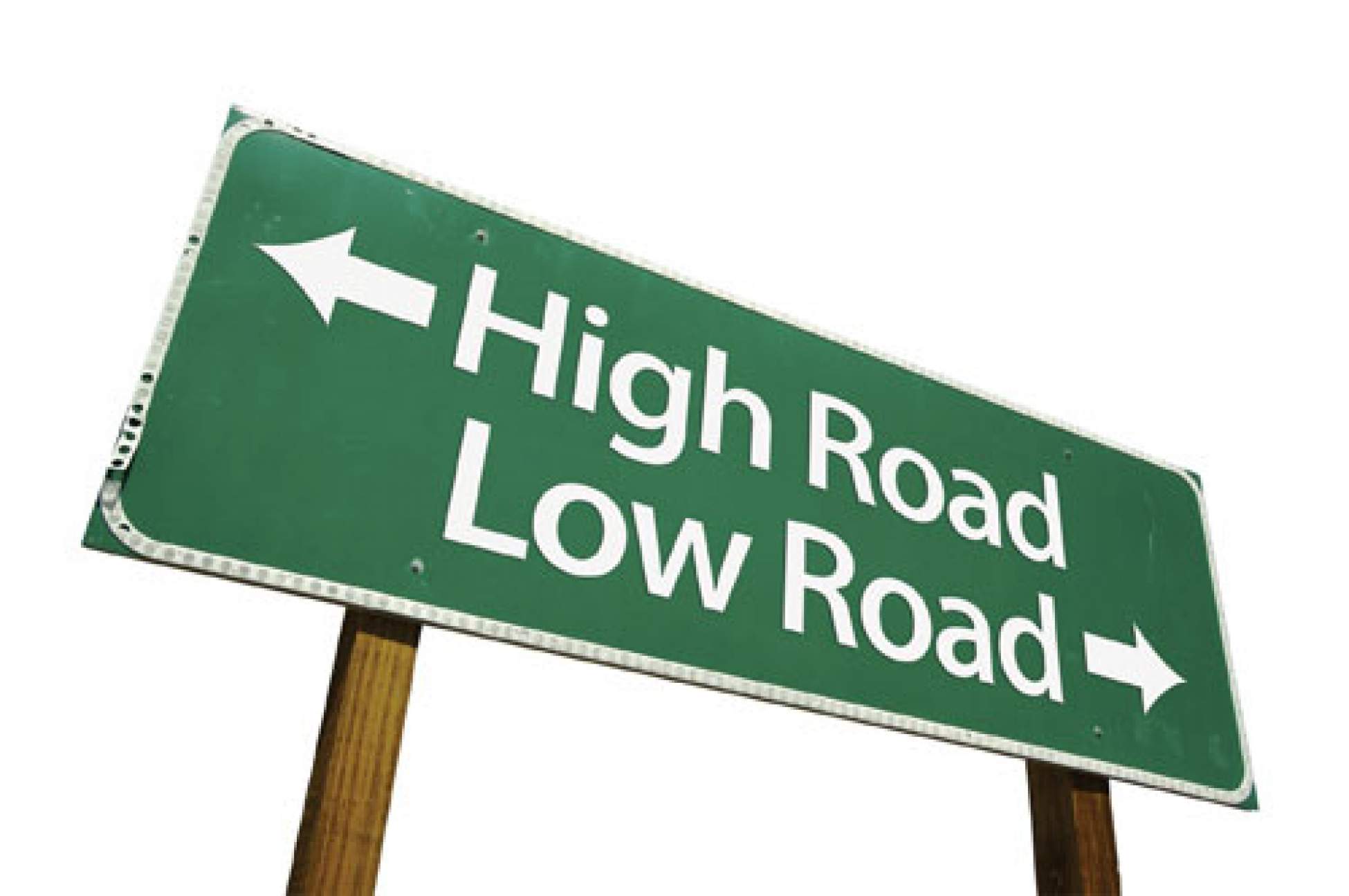Two American women are kissing in the middle of the dance floor oblivious to the hostile stares of the grandmothers in a conservative, Catholic community in rural Mexico. A visitor to Panama becomes incensed at the prevalence of polystyrene cups being used at restaurants: "Don't they know about the health and environmental impacts of Styrofoam?"
A young man arrives in Burma to begin what he hopes will be a long, arduous training in Vipassana meditation. It is the 13th anniversary of Aung San Suu Kyi's confinement.
After bargaining aggressively to pay the local rate instead of the "tourist rate" to the rickshaw driver, a young traveller celebrates his newly won "cultural competence" with an ice cream at the Hilton.
What do you do when someone you've befriended brings you home to dinner, and endangered turtle soup is the chosen entrée?
What are your travel ethics? What do you admire or abhor in other travellers' choices? Choices are where ethics begin, and, as travel options multiply for so many, a conversation regarding the moral dimensions of travel has arisen. Not many of us question the ethics of those who travel for survival, be it refugees from Darfur or brown bears migrating south in Wyoming. It is when we travel for less urgent purposes that we begin to examine all the other choices that go along with it.
Most discretionary travel comes under the heading of tourism. The World Tourism Organization defines tourists as people who "travel to and stay in places outside their usual environment for not more than one consecutive year for leisure, business, and other purposes not related to the exercise of an activity remunerated from within the place visited." This includes those of us travelling to perform good deeds of service as well as those of us going on holiday. It includes students, adventurers, sex tourists, scientists, writers, medical tourists, and what is left of the big game hunting crowd. It presumably includes missionaries and soldiers if their tours are less than one year's duration. Tourism is an enormous industry and ethical tourism is the organic option.
If you Google "ethical travel", you get about 429,000 listings that will direct you to lists of most prescribed ethical practices, destinations, travel books, tour companies, as well as an assortment of T-shirts, ethical souvenirs and music selections. While observance may be an issue, there isn't much to disagree with when it comes to most of the prescribed behaviours: be mindful; minimize your harm to the environment; don't spend your money in ways that promote evil; have a clue about the culture and language of your destination; be a good person in all of your interactions with locals. It's all pretty sound advice and if everyone at home took it to heart, we might be less eager to travel. Most prescribed ethical practices aren't particularly controversial or, for that matter, all that interesting. Travel ethics become compelling when there are complex competing values.
What do you do when someone you've befriended brings you home to have dinner with his family, and endangered turtle soup is the featured entrée? How do you respond when a new acquaintance shows up at your hotel with a gift of a dripping wet chunk of coral from the reef that you were snorkelling on earlier in the day? And, while you are puzzling out this conundrum and labouring not to insult or hurt feelings, he asks for your new Nike trainers as a return token of friendship.
Travel ethics really starts to get edgy when we go beyond just minimizing the harm of our trip, and decide that the positive sum of our travel needs to outweigh the negative. How do you evaluate experience? How do you weigh that experience against a carbon footprint? Do your good deeds of service outweigh the benefit of just sending the airfare to someone who needs it? How can such things be measured and who should do the measuring? What is at stake here?
If the unexamined life is not worth living, perhaps the unexamined trip is not worth taking. Our beliefs inform our travels. What we believe to be right or important about our travel will define what we do and how we view it. In future columns, we will look at some notions of what constitutes the good in travel. We will explore the edges of competing values in sex, romance, economics, service, adventure, work, and play. And we'll raise some thought provoking questions along the way.
Bill Frederick is the Director of Safety and Risk Management Services at The School for Field Studies. He holds a B.A in Psychology from the University of Colorado and an M.Ed from Harvard University.
